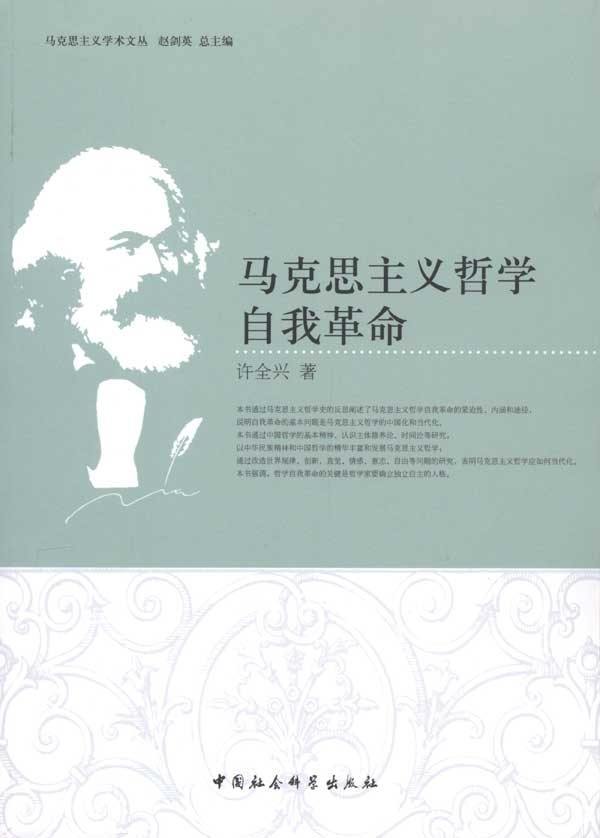Self-Revolution in Marxist Philosophy

Xu Quanxing’s Self-Revolution in Marxist Philosophy was published by China Social Sciences Press in December 2009. As a professor of philosophy, Xu Quanxing has made great contributions to theoretical research in Marxist Philosophy in China. Self-Revolution in Marxist Philosophy includes three parts: Self-Reflection in Marxist Philosophy, Self-Revolution and Chinese Marxist Philosophy and Self-Revolution and Modernization in Marxist Philosophy. In Part I, Xu introduces the development, crisis and dogmatization of Marxist Philosophy and elaborates on the reasons why Marxist Philosophy needs self-revolution and the ideas contained in self-revolution. Xu analyzes the proposal, the meaning and the main achievements of Chinese Marxist philosophy in Part II. In this section he and also emphasizes that the import of combining Marxist philosophy with Chinese philosophy is significant, and expresses his opinion on how Marxist philosophy can absorb the basic spirit of the latter. In the final part, Xu demonstrates the importance of the meaning of theoretical problems in self-revolution, such as practice, innovation, willpower and freedom. In the conclusion, Xu notes that there is a historical tradition of comprehensively organizing Chinese philosophy, citing Xunzi and later Wang Fuzhi. Thus, Xu proposed that it is the right time to call for a third comprehensive organization of the theories and spirit of Chinese philosophy.
Chen Weiping, a professor in the department of philosophy at East China Normal University, appraised Xu’s Self-Revolution in Marxist Philosophy as being based on Chinese history and reality. Xu’s idea that Chinese Marxist philosophy should follow the step of self-revolution in Marxist philosophy is really impressive, Chen Weiping said, further commenting that Chen Xu focuses on this idea to explore theoretical problems extant in Chinese Marxist philosophy. He furthered noted that the volume’s delving the relationship between Marxist philosophy and Engels and Lenin helps facilitate an understanding of how to achieve the integration of Marxist philosophy with Chinese traditional philosophy and other theoretical problems. Xu’s answers to those problems are unique and inspiring, Chen Weiping affirmed, praising the comprehensiveness of the work’s historical references, some of which have never been utilized in other studies.
Xu Quanxing is the former dean of the graduate school of the Party School of the Central Committee of the CPC and a professor of philosophy.
The Chinese version appeared in Chinese Social Sciences Today, No. 422, Mar. 4, 2013
Translated by Zhang Mengying

 PRINT
PRINT CLOSE
CLOSE